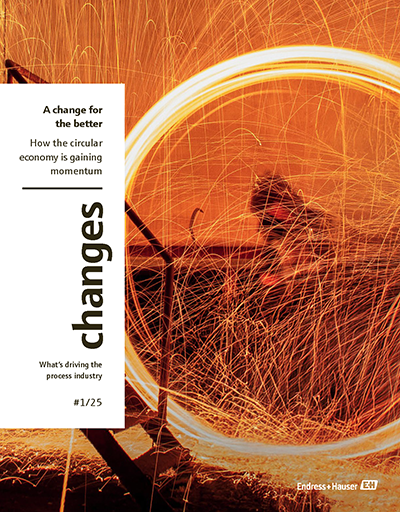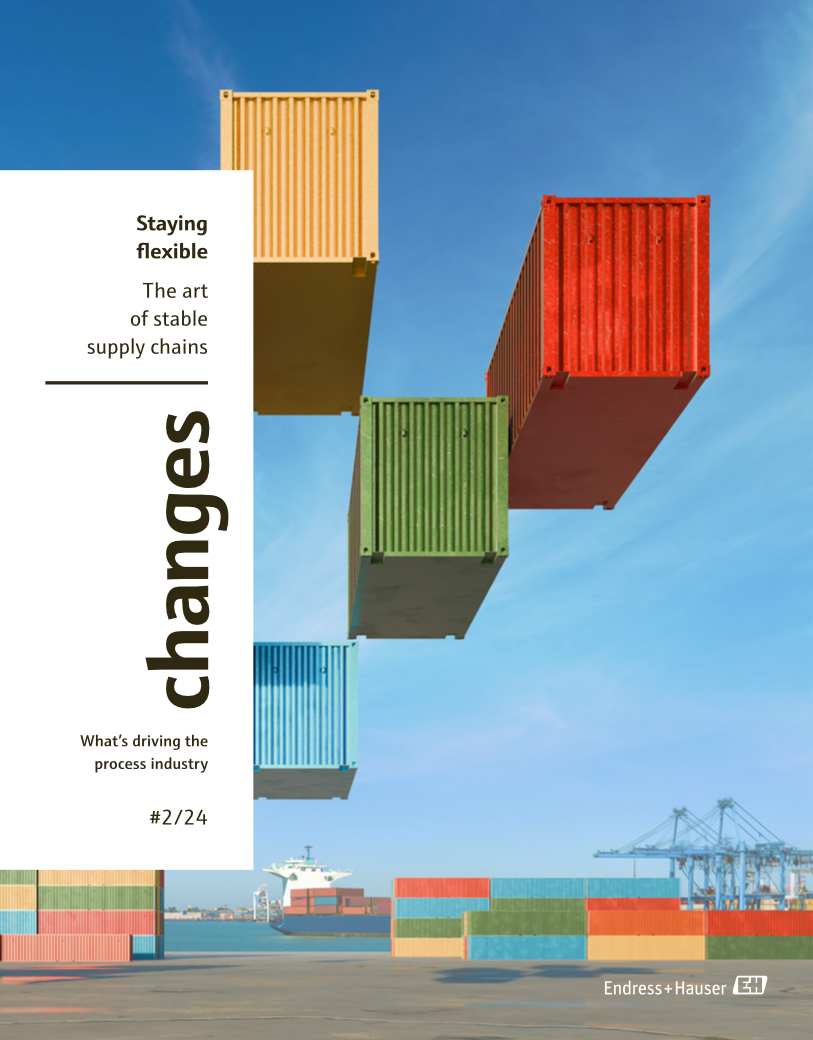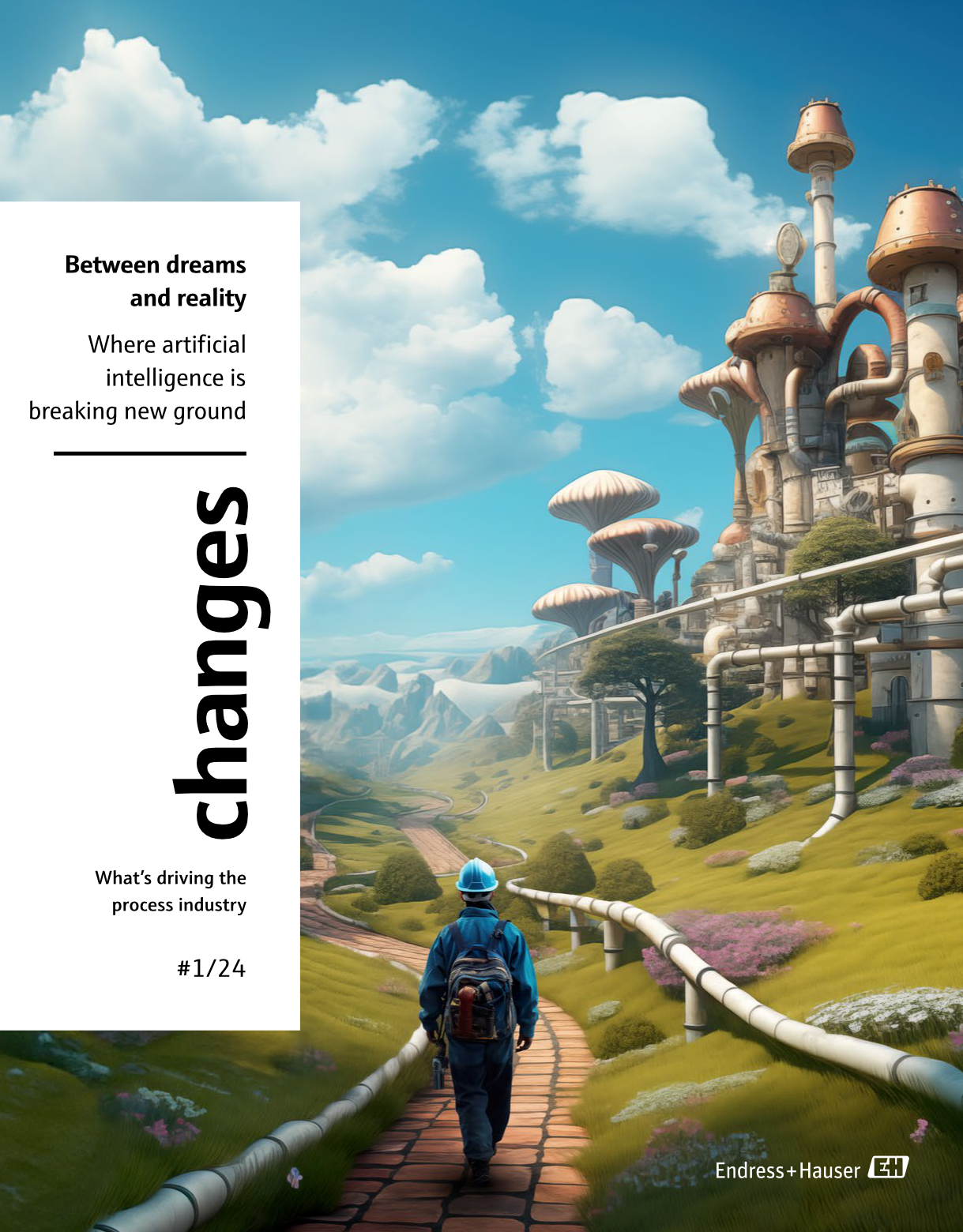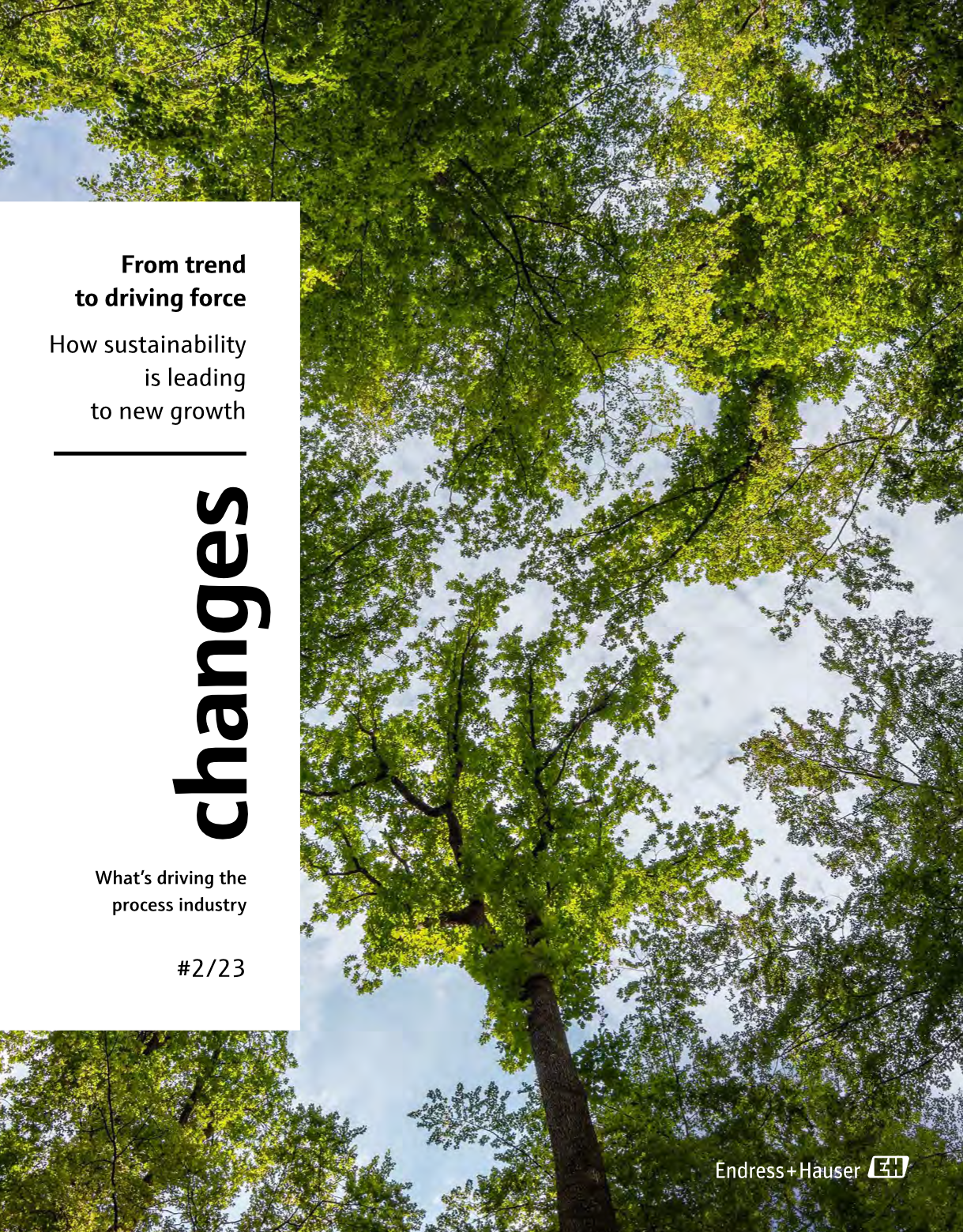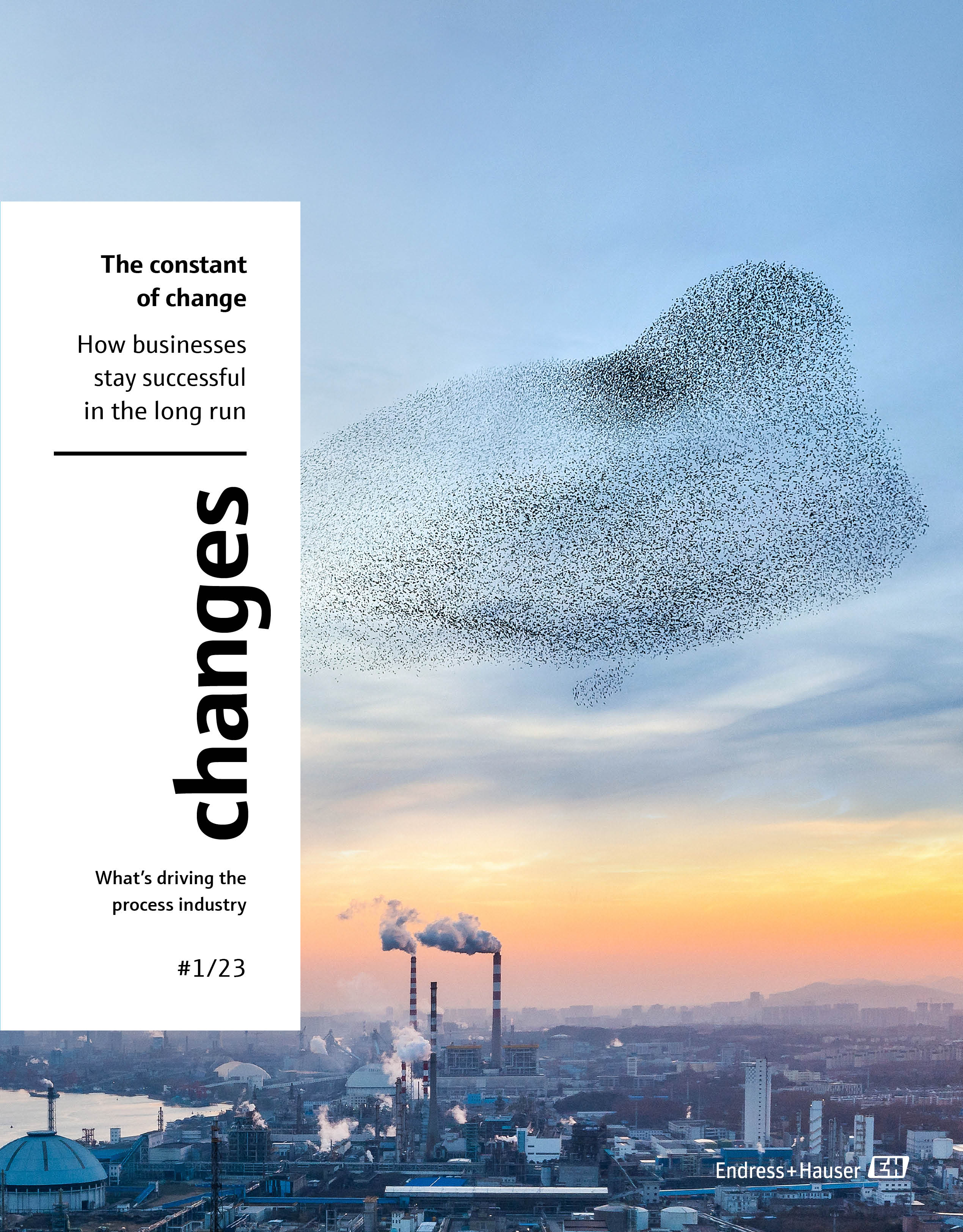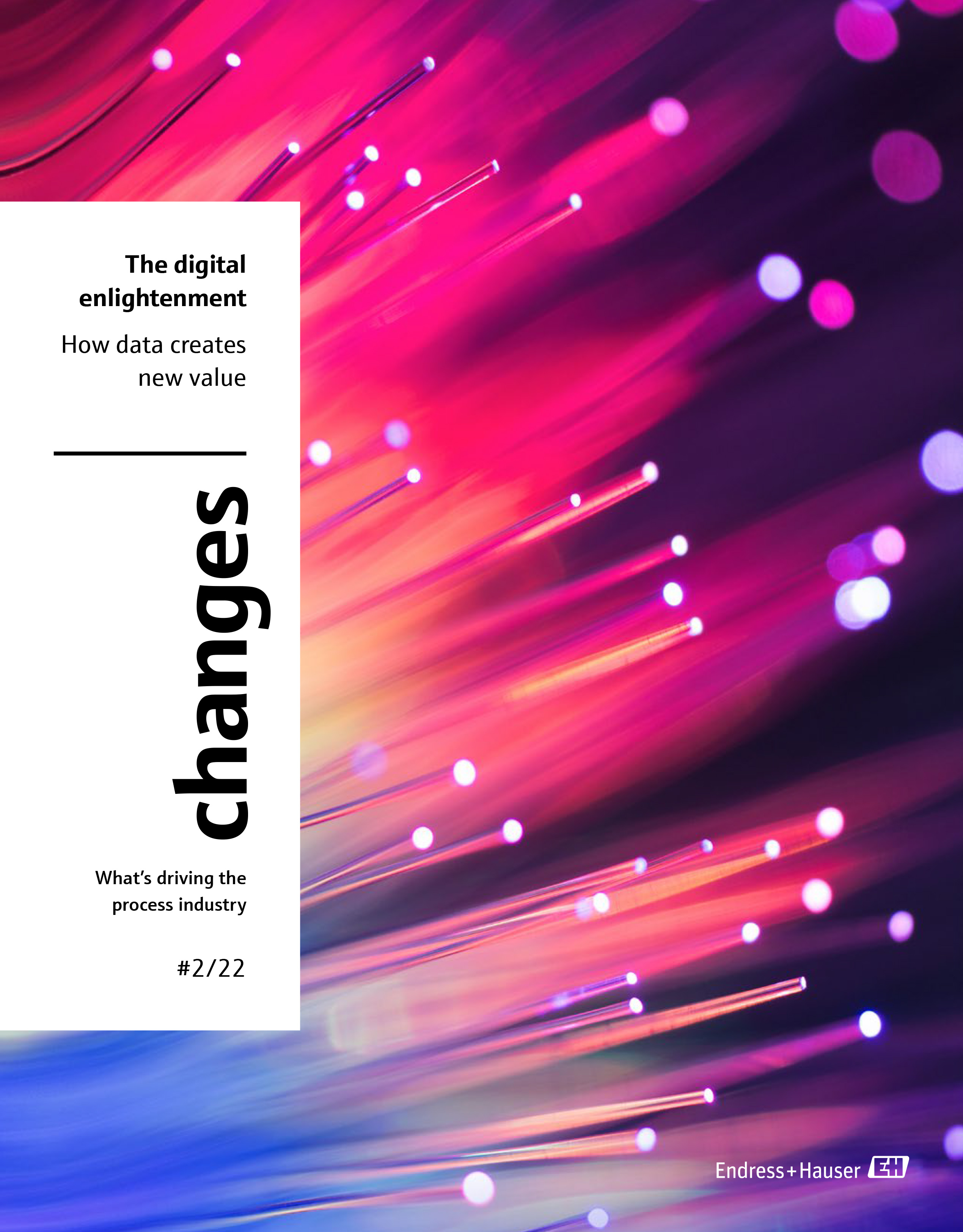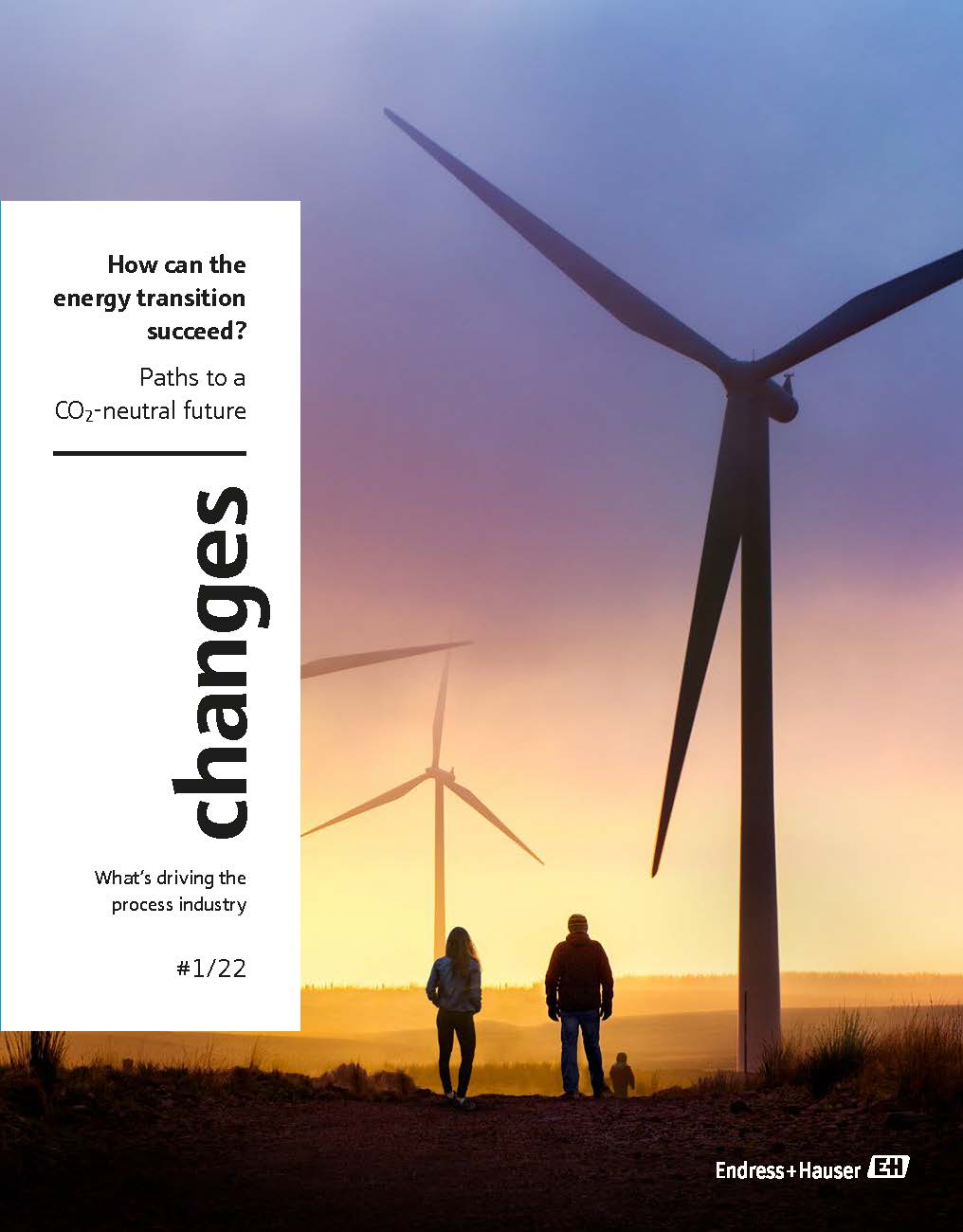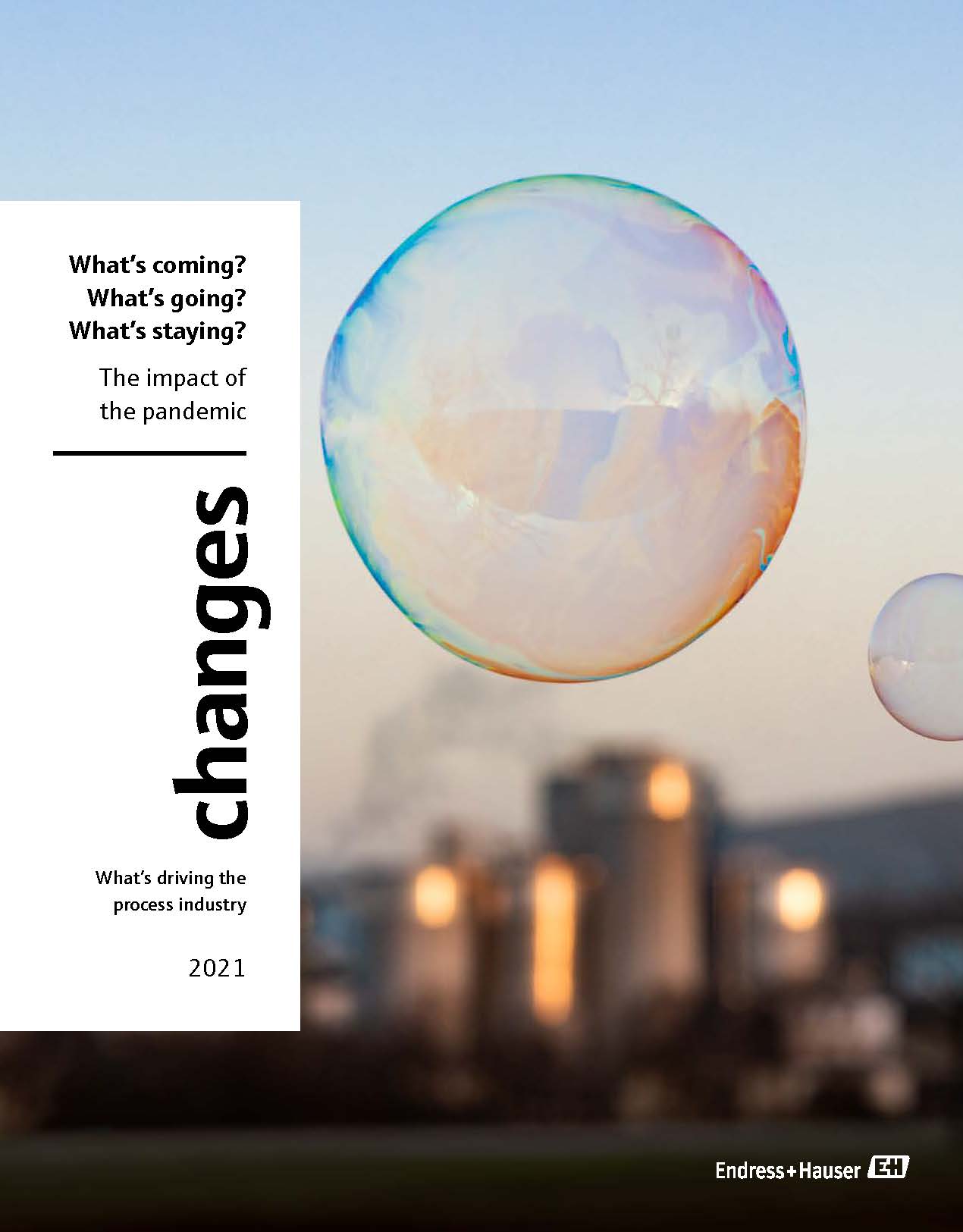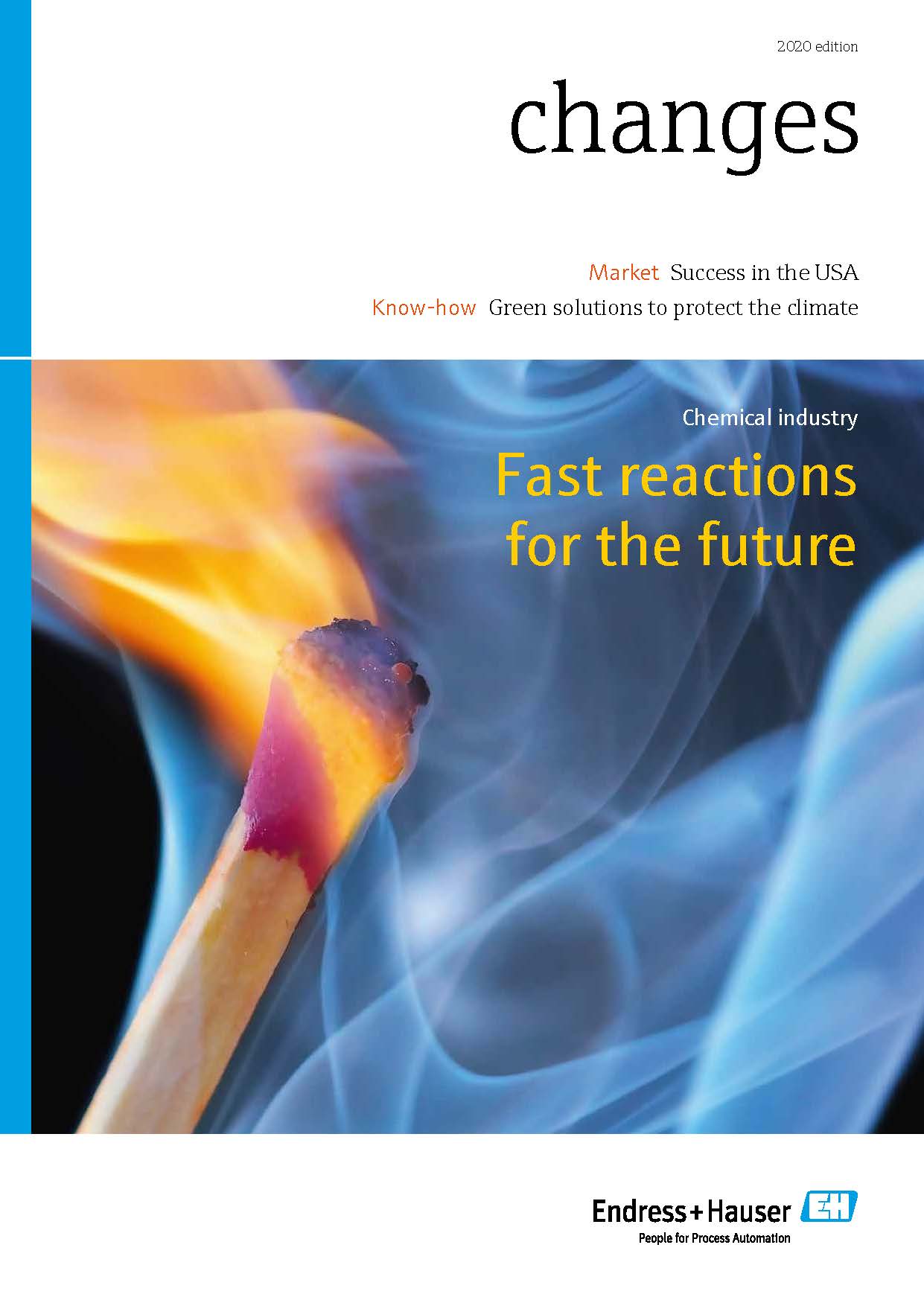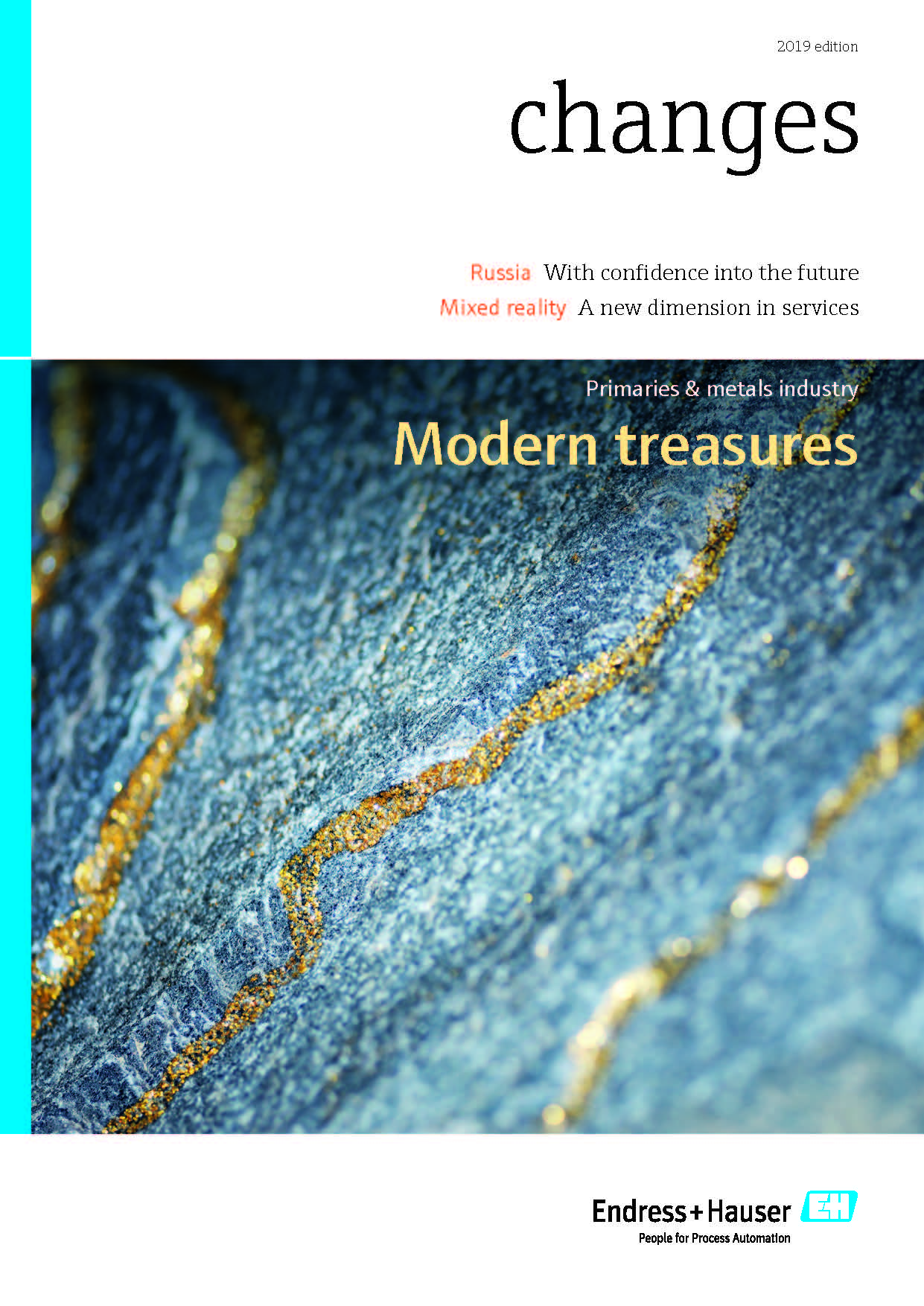A new era
Beginnings are always hard – and so it is with the circular economy. Michael Sinz, director of strategic business, explains how it can become a reality for the process industry and how Endress+Hauser is making headway with its implementation.
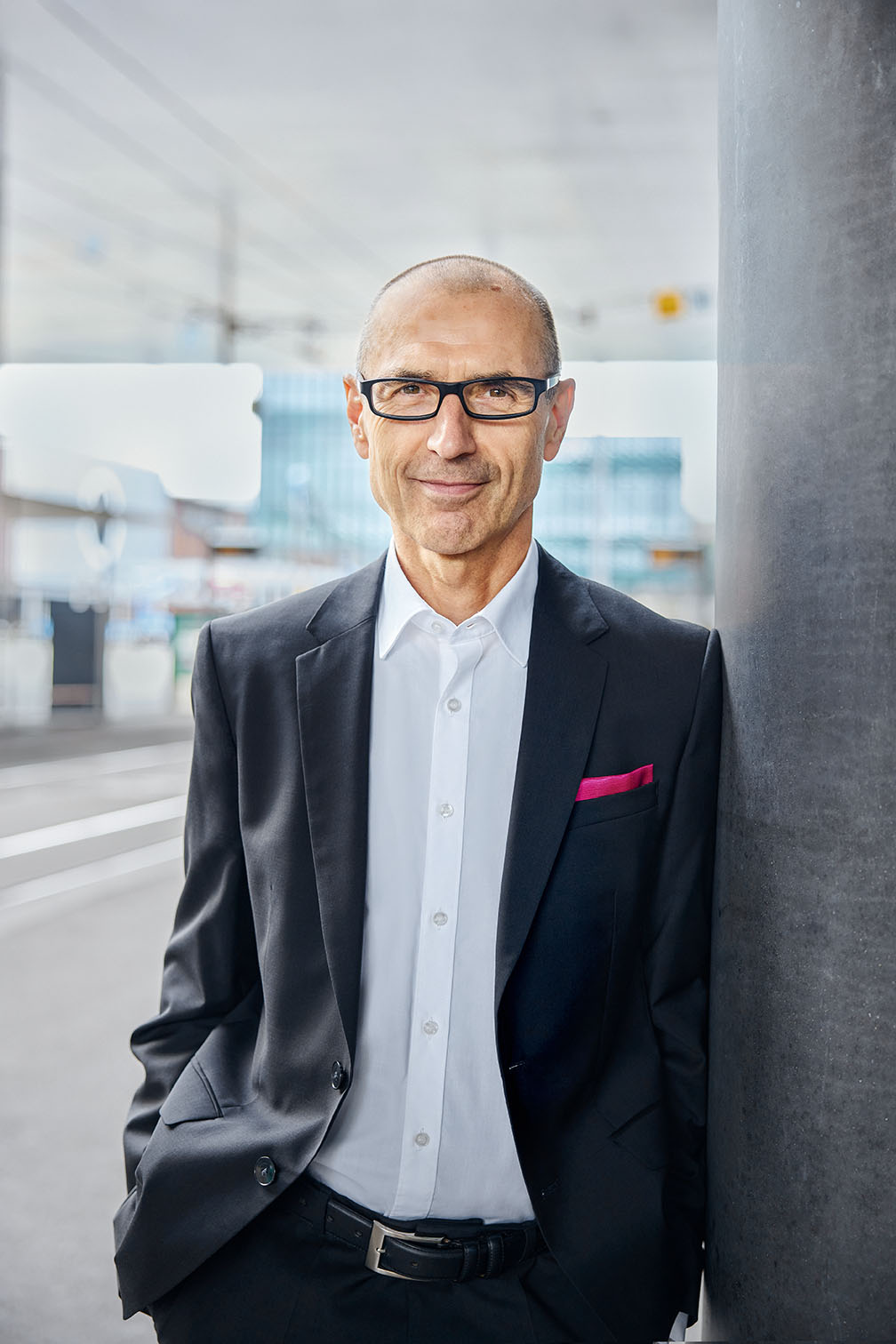
As director of strategic business, you know what drives Endress+Hauser’s key customers worldwide. How important is the circular economy to these companies right now?
The circular economy is of fundamental relevance to the entire process industry, this being the only way for it to achieve the goals of the Paris Climate Agreement and cut greenhouse gas emissions to net zero. Pressure to implement those goals is now rising, as governments of more and more countries demand that companies report on their sustainability and make improvements there. A circular economy is one key factor for getting this done, because it is about conserving resources while avoiding waste and emissions. Yet the whole venture is still in its infancy.
Why is that?
The circular economy is a gargantuan undertaking. Its all-in concept encompasses three domains. So far, companies have been concentrating heavily on the first of them, the energy transition. Its implementation is relatively quick and easy within a business and in the supply chain. This is where renewables, energy efficiency and, in future, green hydrogen will make processes more sustainable. The other two domains are about completely changing production and consumption: Although products will continue to be made from biomass-based materials, fossil-based products such as those made from oil – and minerals, too – should be kept in the product cycle. This means recycling and reintroducing them to the cycle as many times as possible. It all adds up to requiring a larger and longer transformation.
How can businesses accomplish this complex task?
Companies need to rethink their strategy and adopt a systemic approach. If they really want to close the loop, every product development will have to consider the entire life cycle – from raw materials, through design and manufacturing, all the way to recycling. This entails thinking in terms of material cycles, then developing innovative solutions and circular business models, and finally building new value chains. Success will depend on companies opening up, collaborating and sharing their knowledge more. A new era of cooperation is needed – one that will lead to added value for all.
Are there any sectors that are regarded as pioneers here?
I am seeing initiatives across all sectors. One common theme is recycling, particularly of plastics and batteries. This is where many alliances are emerging along the value chains linking the chemical industry, the oil and gas industry, mining, construction and the waste management business. It is both politically driven and holds the greatest potential for new business models. Waste is the raw material source of the future. Whoever can tap into that will reduce supply risks. The high initial investments will pay off in the long term.
What are the other priorities in the process industry?
The food industry is looking into upcycling production by-products as well as waste. These can be converted into biomethane or upgraded into animal feed and thus reintroduced into the cycle. As all sectors are major consumers of water, conserving and reusing this resource is also on the rise wherever you look.
How does Endress+Hauser support customers in their transition to a circular economy?
Our broad portfolio of measurement technology and solutions supports our customers in giving shape to all three domains of the circular economy. Precise and reliable measurements help to make processes safe, resource friendly and energy efficient. With our application knowledge and willingness to develop further in step with our customers and their needs, we were an early entrant to areas such as green hydrogen, white biotechnology and chemical recycling. We grew stronger in the field of analysis, so customers can determine material properties and hence quality, both inline and online. This is of increasing importance with regard to blends, renewable raw materials and recycled materials.
And how is Endress+Hauser itself tackling the circular economy issue?
The current focus is on decarbonizing our portfolio. We opt increasingly for primary products from suppliers who use green energy or raw materials with a high proportion of recycled products. And we are trying to reduce the energy requirements of our instruments, as well as finding ways to further optimize their longevity and return them to the cycle at the end of their useful life.
Published 23.04.2025, last updated 12.05.2025.
Dive into the world of the process industry through new exciting stories every month with our «changes» newsletter!
